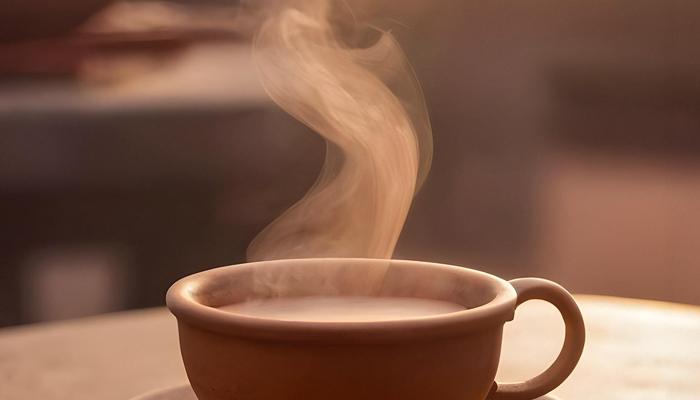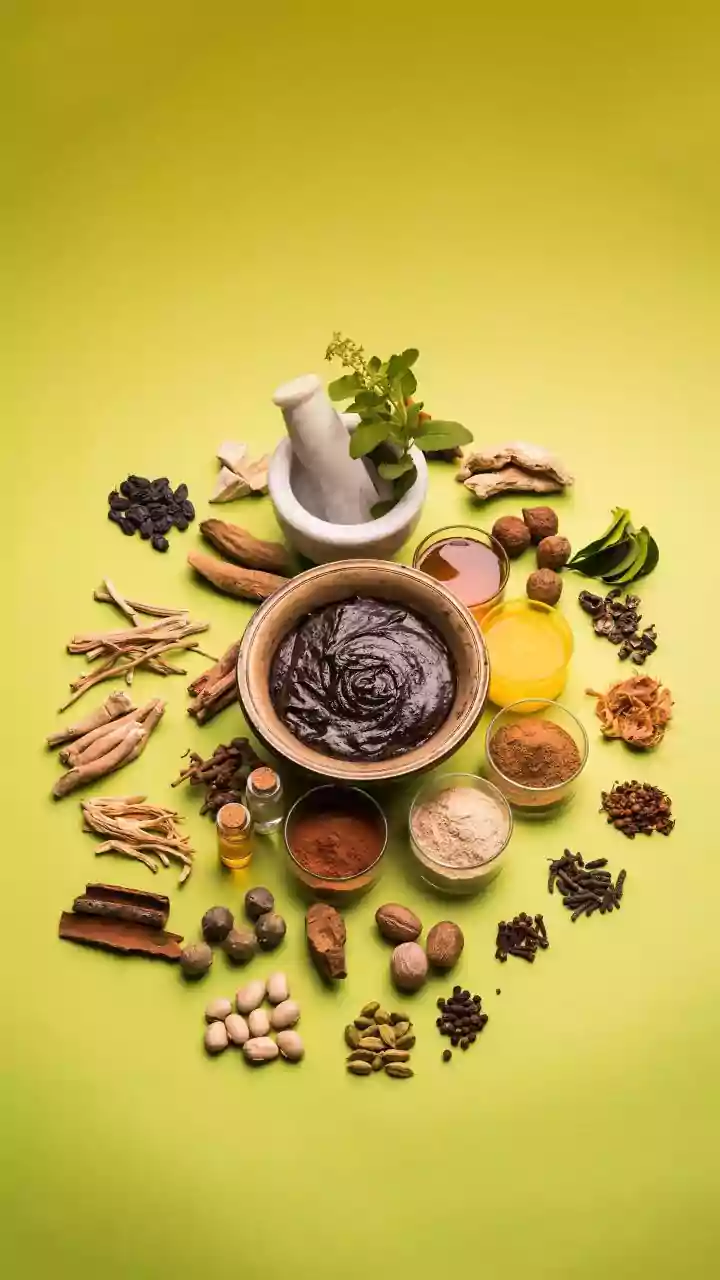Debating Tea vs. Coffee: 10 Facts to Uncover - Which brew suits your lifestyle better? Dive in to find out!
A cuppa chai or a strong brew of coffee – the debate rages on! For many Indians, their day starts
with either tea or coffee, and the question of which one is healthier often pops up during conversations over breakfast.
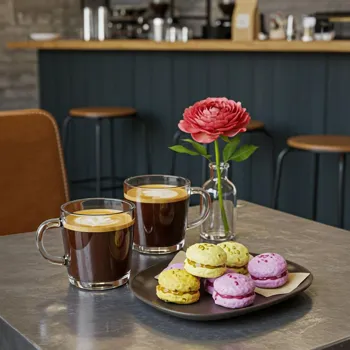
Both beverages have their pros and cons, and the "healthier" choice depends largely on individual needs and preferences. Let's dive into ten facts to help you decide which beverage might be a better fit for your lifestyle.
Coffee has more caffeine than tea, providing intense energy
First things first, let's talk about caffeine. Coffee generally packs a bigger punch in the caffeine department compared to tea. A typical cup of coffee can contain anywhere from 95 to 200 milligrams of caffeine, while a cup of tea usually has around 30 to 70 milligrams.

This means coffee can provide a more intense and immediate energy boost. However, this also means it can lead to the jitters and a more significant crash later on, especially for those sensitive to caffeine.
Tea, with its lower caffeine content, offers a gentler and more sustained energy lift, making it a good option for longer periods of concentration without the anxious side effects. If you are someone who needs a quick boost to get going in the morning, coffee might be your go to choice.
But if you prefer a steady and calm alertness, tea might be a better option. The amount of caffeine can also vary depending on the type of tea or coffee, the brewing method, and the serving size, so it is important to check what type is suitable if you are having any health problems.
Tea and coffee are antioxidant powerhouses, offering health benefits and protection against free radicals
When it comes to antioxidants, both tea and coffee bring their A-game. Tea is rich in polyphenols, especially catechins, which have been linked to various health benefits, including improved heart health and reduced risk of certain cancers.
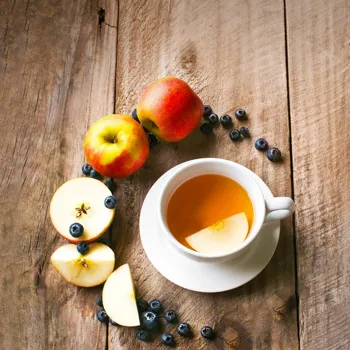
Green tea is particularly known for its high concentration of these beneficial compounds. Coffee, on the other hand, is a good source of chlorogenic acid, another powerful antioxidant that may help regulate blood sugar levels and protect against chronic diseases.
Both beverages contain antioxidants that helps in protecting the body from damage caused by free radicals. Free radicals are unstable molecules that can contribute to aging and various health problems. Antioxidants helps neutralize them.
So, whether you choose tea or coffee, you're giving your body a dose of beneficial antioxidants that can contribute to your overall well-being. It is like a team of superheroes fighting to keep you healthy!
Tea and coffee's diuretic effects on hydration levels
While both tea and coffee are primarily water, their diuretic effects can impact hydration levels. Caffeine is a mild diuretic, meaning it can increase urine production.

However, the hydrating effect of the water in these beverages generally outweighs the diuretic effect, especially if you're a regular consumer. If you're sensitive to caffeine, you might notice more frequent trips to the restroom after drinking coffee.
Tea, with its lower caffeine content, is less likely to have a significant diuretic effect. Still, it's important to drink plenty of water throughout the day, regardless of whether you're a tea or coffee lover.
Both tea and coffee made from natural organic products contribute to your daily fluid intake and can be part of a healthy hydration strategy. Just make sure to listen to your body and adjust your water intake accordingly.
Staying hydrated is key for maintaining energy levels, supporting bodily functions, and keeping your skin glowing.
Consuming tea or coffee sans sugar boosts health
The way you consume your tea or coffee can significantly impact its healthfulness. Adding sugar, cream, or flavored syrups can quickly turn a healthy beverage into a sugary indulgence.
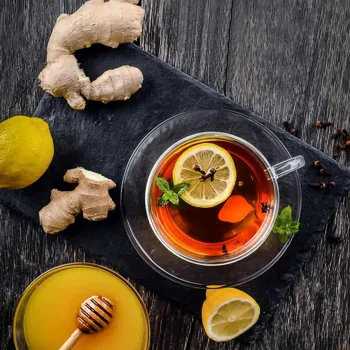
Excessive sugar intake can negate the health benefits of tea and coffee and contribute to weight gain, blood sugar imbalances, and an increased risk of chronic diseases. Ideally, you should try to enjoy your tea or coffee without added sugars.
If you need a touch of sweetness, opt for natural alternatives like stevia or monk fruit in moderation. Similarly, be mindful of the type and amount of milk or cream you add to your drink.
Choosing lower-fat options or plant-based alternatives like almond or oat milk can help keep your beverage healthy while still adding creaminess. Remember, it’s about finding a balance that allows you to enjoy your favorite beverage without compromising your health goals.
A dash of cinnamon or a pinch of nutmeg can also add flavor without adding extra sugar.
Tea and coffee impact digestion differently, choose wisely
Both tea and coffee can influence your digestive system. Coffee, due to its acidity and caffeine content, can stimulate bowel movements and may trigger acid reflux or heartburn in some individuals. Tea, especially certain types like peppermint or ginger tea, can aid digestion and soothe the stomach.
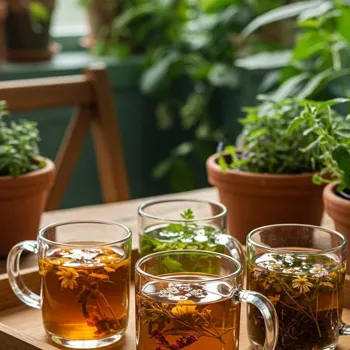
The tannins in tea can also help reduce inflammation in the gut. However, for some people, tea can cause constipation, especially black tea. If you experience digestive issues, pay attention to how your body responds to tea and coffee.
It may be helpful to drink them in moderation or avoid them altogether if they seem to exacerbate your symptoms. Ginger tea is a great option for digestion after heavy food and can calm down your stomach.
Many people use tea and coffee as a ritual in the morning and find it helpful in their bowel movement and find that it helps kickstart their day.
Caffeine disrupts sleep, avoid coffee before bed, opt for tea
Caffeine can interfere with sleep, especially if consumed close to bedtime. Coffee, with its higher caffeine content, is more likely to disrupt your sleep cycle than tea. Caffeine can block adenosine, a neurotransmitter that promotes relaxation and sleepiness.

This can make it harder to fall asleep and reduce the quality of your sleep. If you are sensitive to caffeine, it's best to avoid coffee in the afternoon and evening. Tea, with its lower caffeine content, may be a more suitable option for an afternoon or evening beverage.
Herbal teas, such as chamomile or valerian root tea, are naturally caffeine-free and can promote relaxation and better sleep. Getting enough sleep is important for your physical and mental health, so it's important to be mindful of how caffeine affects you.
